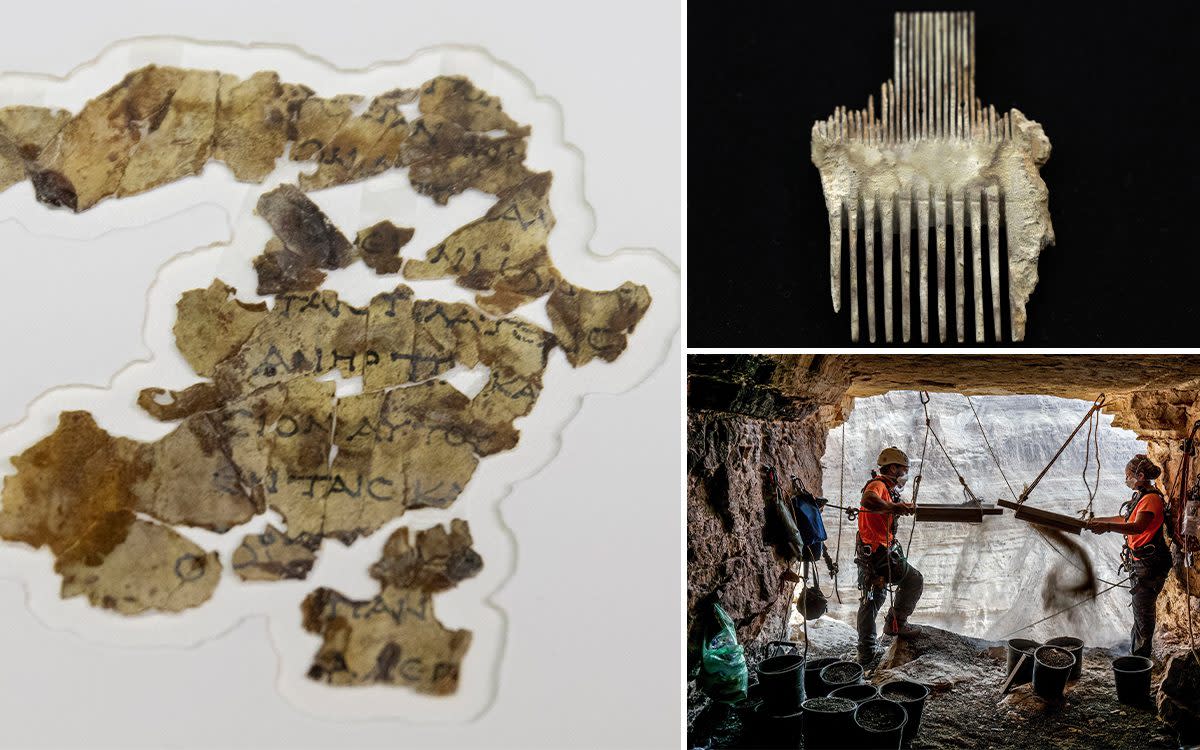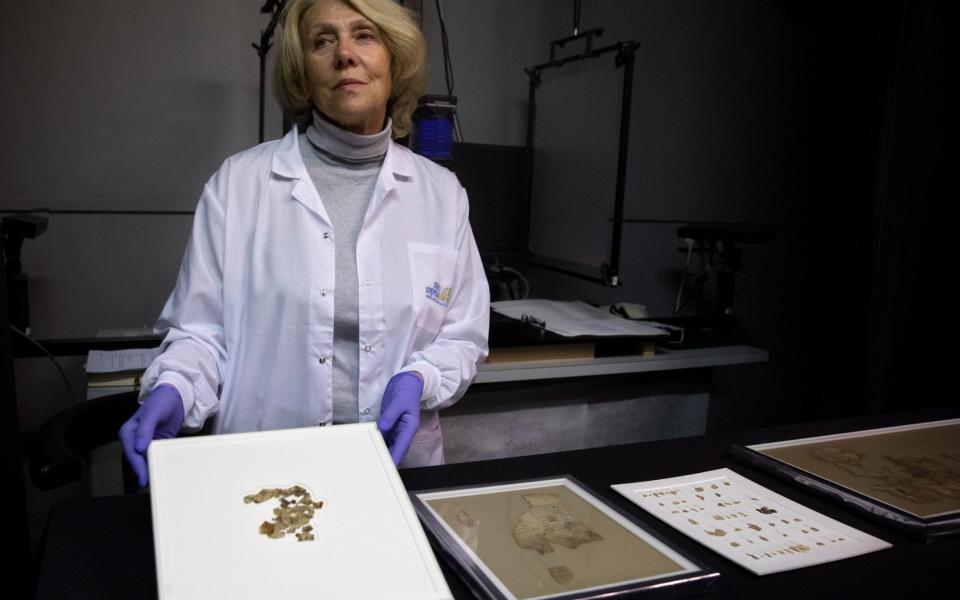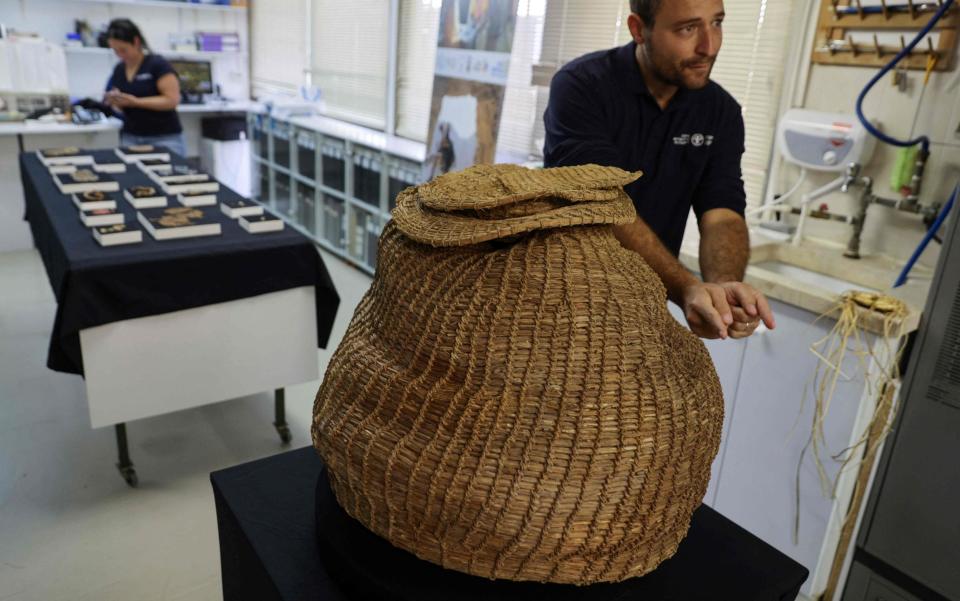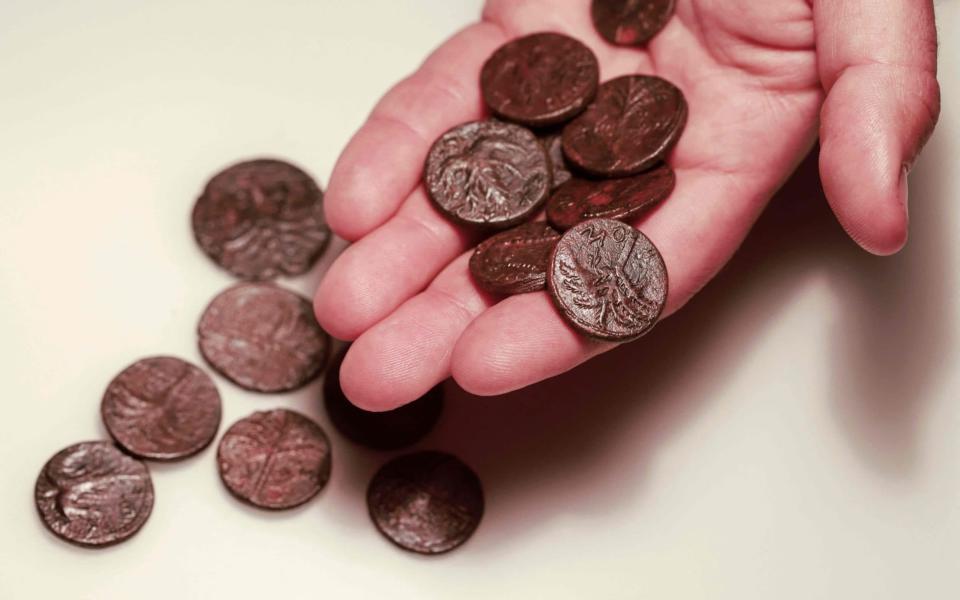Israeli experts discover new Dead Sea scrolls for first time in 60 years

Israeli archeologists have discovered a treasure trove of 2,000-year-old Dead Sea scroll fragments during a perilous excavation of the so-called 'Cave of Horror' in the Judean desert.
The fragments contain lines of Greek text from the Jewish holy books of Zechariah and Nahum, and are the first such discovery in the desert south of Jerusalem in more than 60 years.

To locate the scrolls, the team of archaeologists had to rappel deep into the Cave of Horror, which takes its name from the grisly discovery of 40 skeletons during an expedition in 1961.
Israeli experts say the fragments appear to be part of a scroll that was hidden in the cave during the Bar Kochba Revolt, an armed Jewish uprising against Rome during the reign of Emperor Hadrian, between 132 and 136 AD.
The archaeologists had the added challenge of finding the scrolls before treasure hunters, who for years have been trying to break into the caves and retrieve the precious artefacts for themselves; in some cases, Dead Sea scroll fragments have appeared on the black market.
It was no easy task, according to Israel Hasson, the director of Israel's Antiquities Authority [IAA].
“The desert team showed exceptional courage, dedication and devotion to purpose, rappelling down to caves located between heaven and earth, digging and sifting through them, enduring thick and suffocating dust, and returning with gifts of immeasurable worth for mankind,” he said.

Archaeologists also found the remains of a 6,000-year-old mummified child wrapped in a piece of cloth and a 10,500-year-old large woven basket, which according to experts could be the oldest basket in the world.
A CT scan of the child's remains indicate that he or she was aged 6-12 years old at the time of death. “Due to the arid conditions in the cave, the child was naturally mummified. The cloth and other organic materials, including hair and even skin and tendons, were likewise preserved,” IAA archaeologist Ronit Lupu told the Times of Israel.
The first fragments of the Dead Sea scrolls were found in desert caves in the West Bank between 1940 and 1950 and date back to between the third century BC and the first century AD.
The discovery of the scrolls was momentous as they include the earliest known copies of Jewish biblical texts, and documents said to belong to the Essenes, an ancient Jewish sect.
Joe Uziel, the head of the Dead Sea scrolls unit at the IAA, said the latest fragments could offer new insight into the composition of the Hebrew bible.
"When we think about the biblical text, we think about something very static. It wasn't static. There are slight differences and some of those differences are important," he said.
"Every little piece of information that we can add, we can understand [it] a little bit better" he added.
According to the IAA, one fragment from the newly discovered trove says: “These are the things you are to do: Speak the truth to one another, render true and perfect justice in your gates.”

The new discovery is part of a wider campaign started in 2017 by the IAA to retrieve artefacts from the caves before they fell into the hands of treasure hunters.
But until now, the search had only turned up blank fragments of scrolls.
"For the first time in 70 years, we were able to preempt the plunderers," said Amir Ganor, head of the IAA's theft prevention unit.
“We must ensure that we recover all the data that has not yet been discovered in the caves before the robbers do. Some things are beyond value,” added Mr Hasson, the IAA director.

